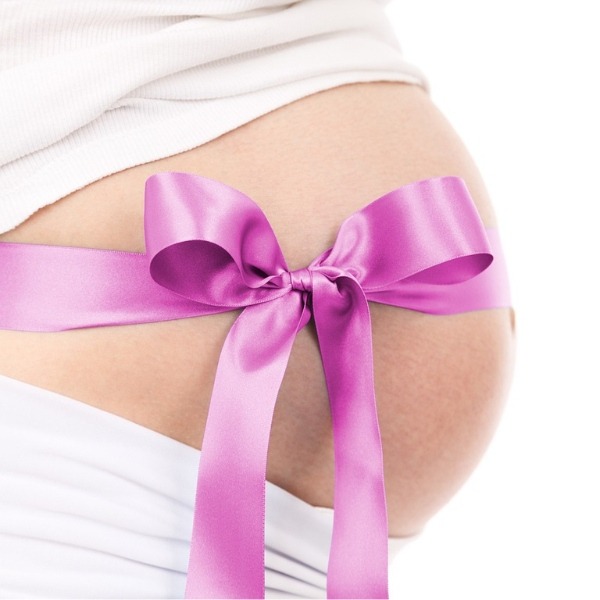Pregnancy is an incredible journey that requires special attention to ensure the well-being of both the mother and the baby. Understanding the types of care during pregnancy is crucial for navigating this transformative time with confidence. From medical check-ups to emotional support, a comprehensive approach to care sets the foundation for a healthy pregnancy.
This article explores the key types of care every expecting mother should prioritize, practical pregnancy health tips, and maternity care needs to ensure a smooth and joyful journey.
Understanding Why Different Types of Care During Pregnancy Are Important

Every pregnancy is unique, and a personalized approach to care ensures the health and safety of both mom and baby. The types of care during pregnancy encompass a range of physical, emotional, and medical needs that adapt to the changes happening within your body.
Careful attention to these needs helps reduce complications, improve overall health, and prepare for the journey ahead. Whether it’s prenatal care essentials or emotional well-being, focusing on comprehensive care ensures a positive experience.
Key Types of Care During Pregnancy
1. Medical Care and Regular Check-Ups
Routine medical care is the cornerstone of a healthy pregnancy. Regular appointments allow healthcare providers to monitor your progress and address any concerns early.
- Key Components of Medical Care:
- Routine ultrasounds to track the baby’s development.
- Blood tests to monitor iron levels and check for conditions like gestational diabetes.
- Blood pressure checks to prevent complications like pre-eclampsia.
- Benefits:
- Early detection of potential risks.
- Monitoring fetal health and growth.
- Guidance on safe medications and supplements.
Staying consistent with your appointments is a critical part of prenatal care essentials that ensures both you and your baby are thriving.
2. Nutritional Care
Proper nutrition is one of the most important types of care during pregnancy for both the mother and the baby. A balanced diet fuels your body and supports the baby’s development.
- What to Focus On:
- Folic Acid: Reduces the risk of neural tube defects.
- Iron: Prevents anemia and supports oxygen flow.
- Calcium and Vitamin D: Strengthens bones and teeth for both mom and baby.
- Pregnancy Health Tips for Nutrition:
- Incorporate leafy greens, whole grains, and lean proteins into your meals.
- Stay hydrated by drinking at least 8–10 glasses of water daily.
- Avoid processed foods and prioritize natural, nutrient-dense options.
By maintaining a well-rounded diet, you provide the building blocks for your baby’s growth while keeping your energy levels up.
3. Emotional and Mental Health Support
Pregnancy often brings emotional changes that require attention and care. Addressing mental well-being is an essential part of maternity care needs and ensures a balanced journey.
- Ways to Support Emotional Health:
- Engage in mindfulness practices like yoga or meditation.
- Seek counseling if you experience stress, anxiety, or depression.
- Build a support system with your partner, family, or friends.
- Examples:
- Joining prenatal support groups to connect with other moms-to-be.
- Scheduling regular “me time” to relax and recharge.
Good mental health promotes a positive environment for your baby and strengthens your ability to handle challenges.

4. Physical Activity
Staying active during pregnancy supports overall health and prepares your body for labor. Exercise is a vital part of pregnancy health tips that enhances both physical and emotional well-being.
- Benefits of Exercise During Pregnancy:
- Reduces back pain and improves posture.
- Boosts mood and energy levels.
- Enhances flexibility and strength for childbirth.
- Safe Activities Include:
- Walking or light jogging.
- Prenatal yoga to increase flexibility.
- Swimming for low-impact cardiovascular exercise.
Always consult your healthcare provider before starting a new exercise routine.
5. Rest and Sleep
Adequate rest is one of the simplest yet most effective important pregnancy care tips to manage fatigue and promote recovery.
- How to Improve Sleep Quality:
- Use a pregnancy pillow for added comfort.
- Establish a calming bedtime routine with activities like reading or warm baths.
- Avoid caffeine in the afternoon and evening.
Quality rest helps your body recover from daily changes and supports your baby’s development.
6. Preparing for Labor and Delivery
Being informed about childbirth is a crucial aspect of maternity care needs that reduces fear and builds confidence.
- What to Prepare For:
- Learn about the stages of labor and pain management techniques.
- Create a birth plan detailing your preferences for delivery.
- Explore breastfeeding techniques and their benefits.
- Resources to Consider:
- Attend prenatal classes to gain hands-on knowledge.
- Watch educational videos or read books about labor and postpartum care.
Preparation ensures a smoother transition into motherhood and helps you feel more in control.
7. Avoiding Harmful Substances
Protecting your baby from harmful substances is one of the most important types of care during pregnancy.
- What to Avoid:
- Alcohol and tobacco.
- Certain medications or herbal supplements not approved by your doctor.
- Exposure to environmental toxins like lead or pesticides.
By avoiding these risks, you create a safe and nurturing environment for your baby.
Practical Pregnancy Health Tips

Incorporating the right care into your daily life doesn’t have to be overwhelming.
- Stay Hydrated: Always keep a water bottle nearby.
- Practice Relaxation Techniques: Deep breathing or gentle stretches can alleviate stress.
- Snack Smart: Opt for nuts, fruits, or yogurt for quick and healthy energy boosts.
- Take Breaks: Listen to your body and rest when needed.
Conclusion
Understanding the types of care during pregnancy ensures a healthy and fulfilling experience for both mother and baby. By focusing on prenatal care essentials, emotional support, proper nutrition, and safe exercise, you can navigate this journey with confidence and joy.
Each type of care contributes to a smoother pregnancy and prepares you for the beautiful transition into motherhood. Embrace these practices to create a nurturing environment that benefits both you and your growing family.
FAQ’s
What are the most essential types of care during pregnancy?
The most essential types include regular medical check-ups, balanced nutrition, emotional support, and safe physical activity.
How can prenatal care essentials improve my pregnancy?
Prenatal care essentials like ultrasounds and routine tests monitor the baby’s development and address any potential risks early.
Are there specific pregnancy health tips for first-time mothers?
Yes, first-time mothers should focus on proper hydration, a balanced diet, and attending prenatal classes to prepare for childbirth.
Why is emotional health a part of maternity care needs?
Emotional health ensures a balanced and positive environment for the baby while helping mothers manage stress and mood changes effectively.
How do I ensure I’m meeting all important pregnancy care tips?
Follow your doctor’s advice, maintain a healthy lifestyle, and stay informed through prenatal classes and educational resources.




